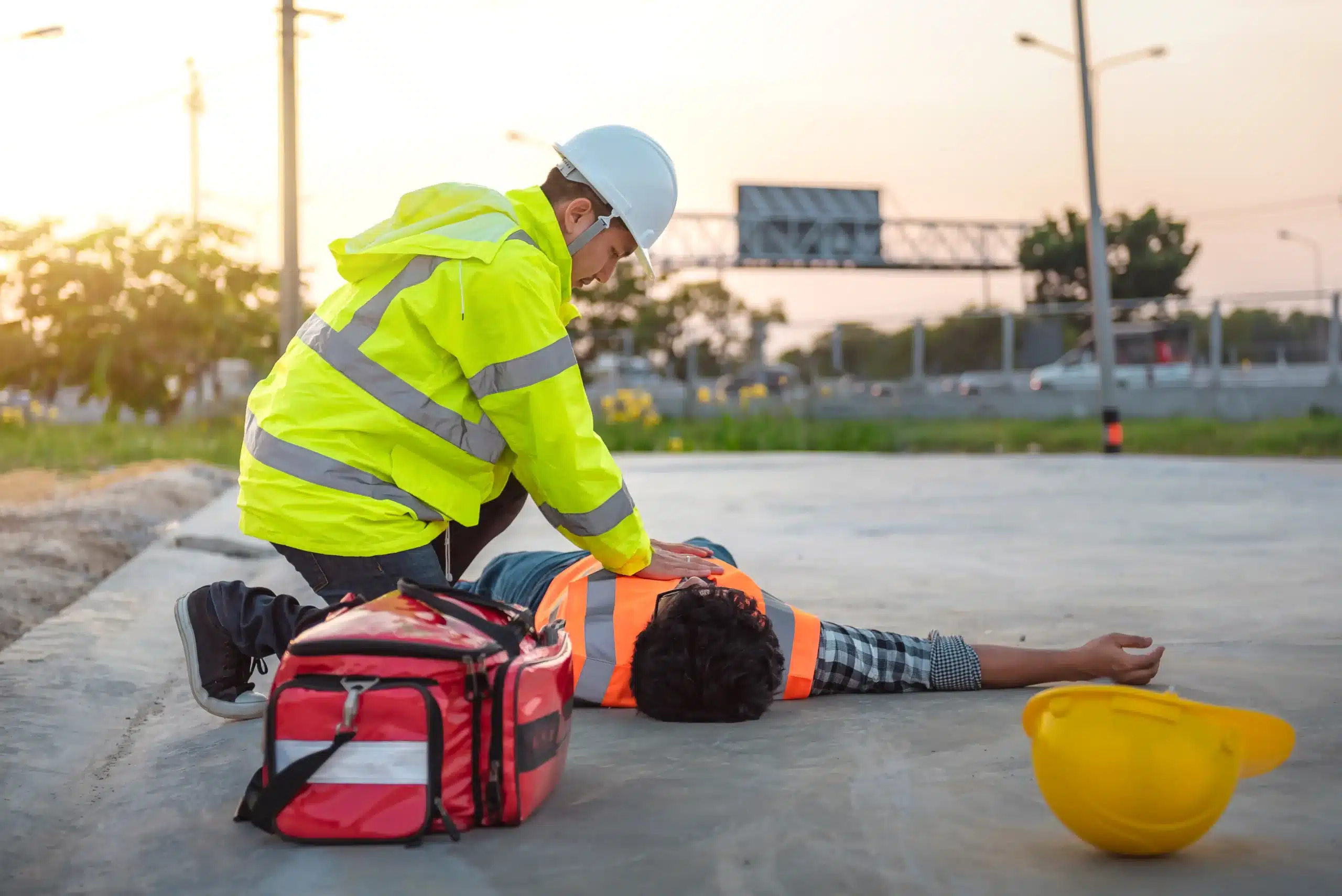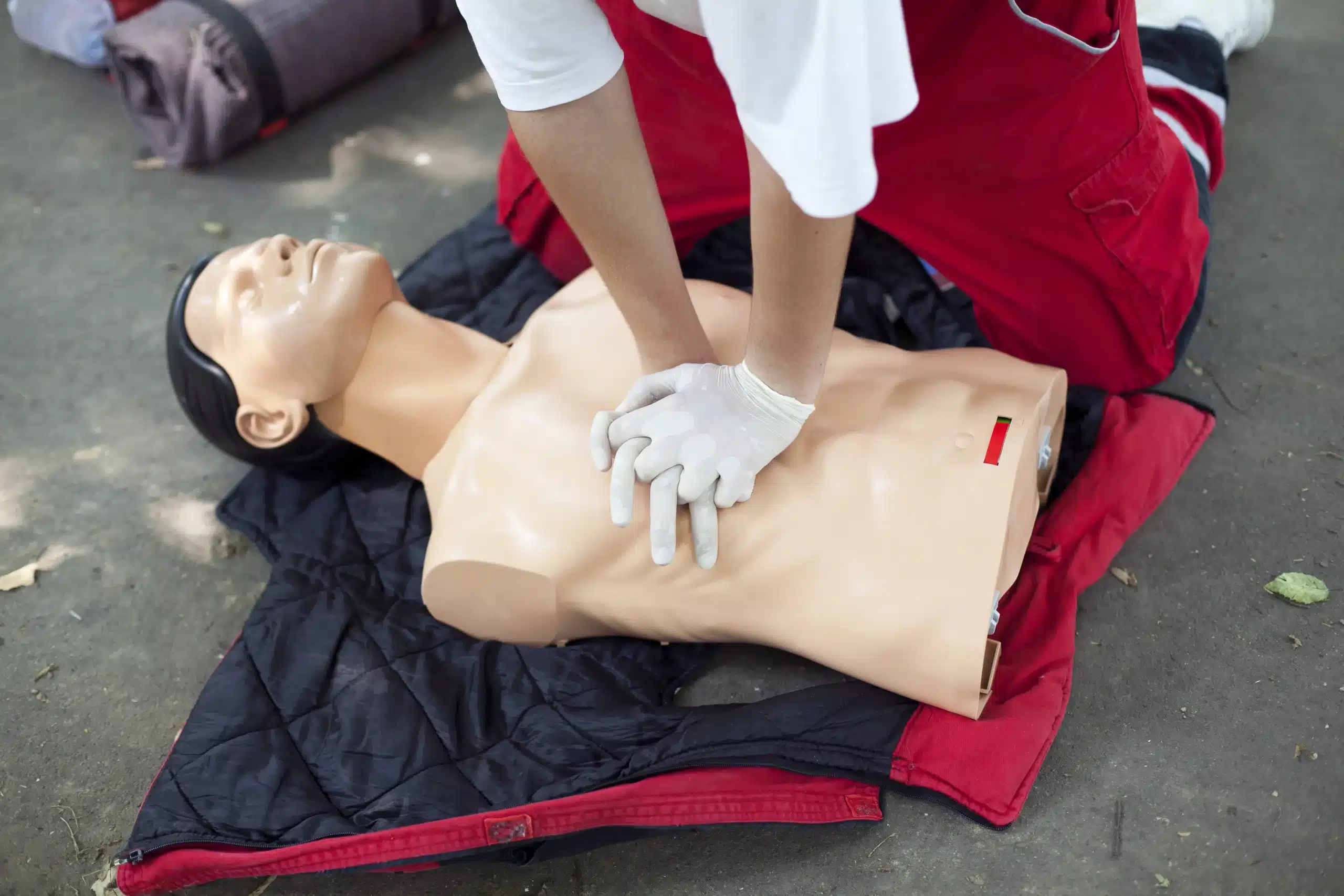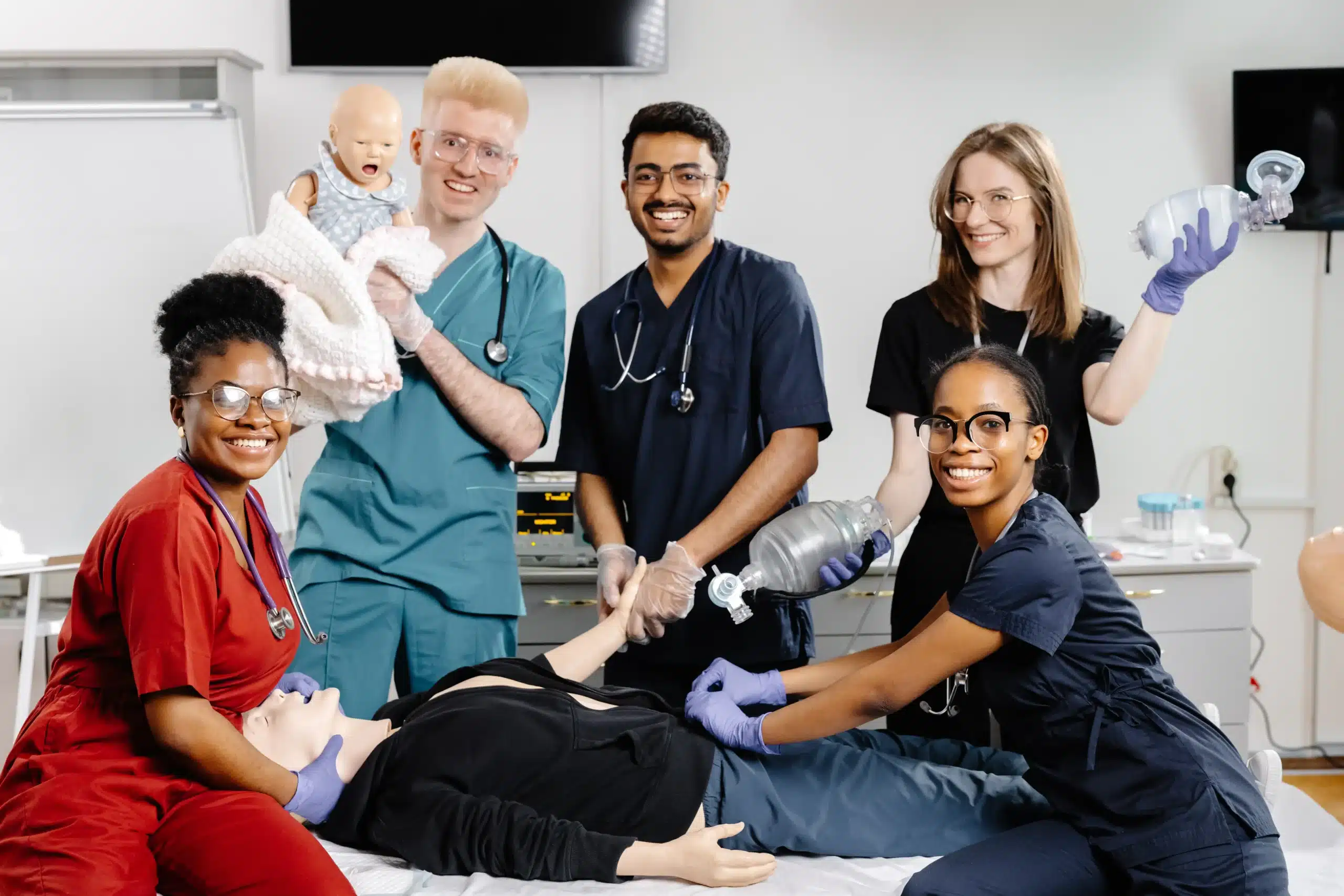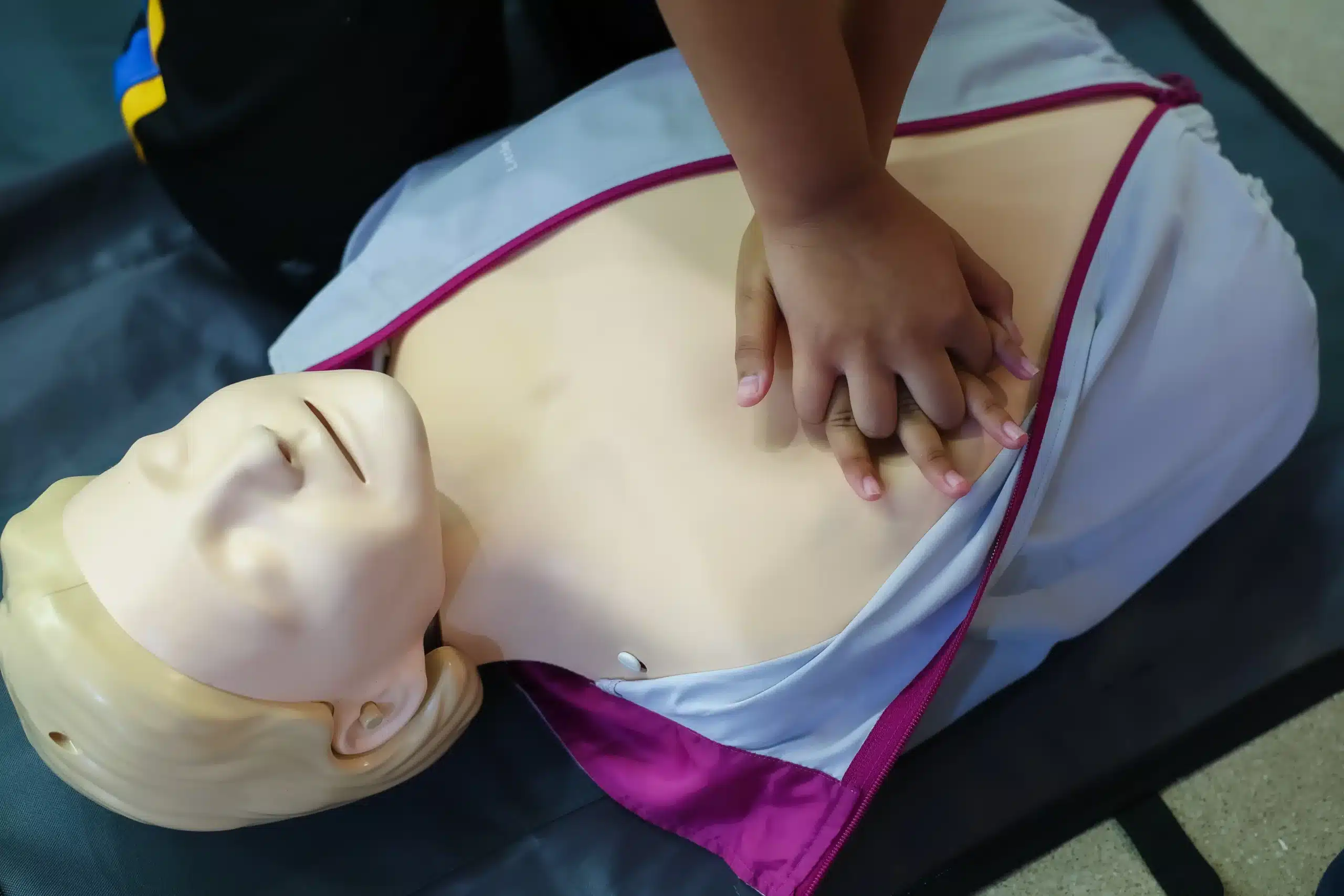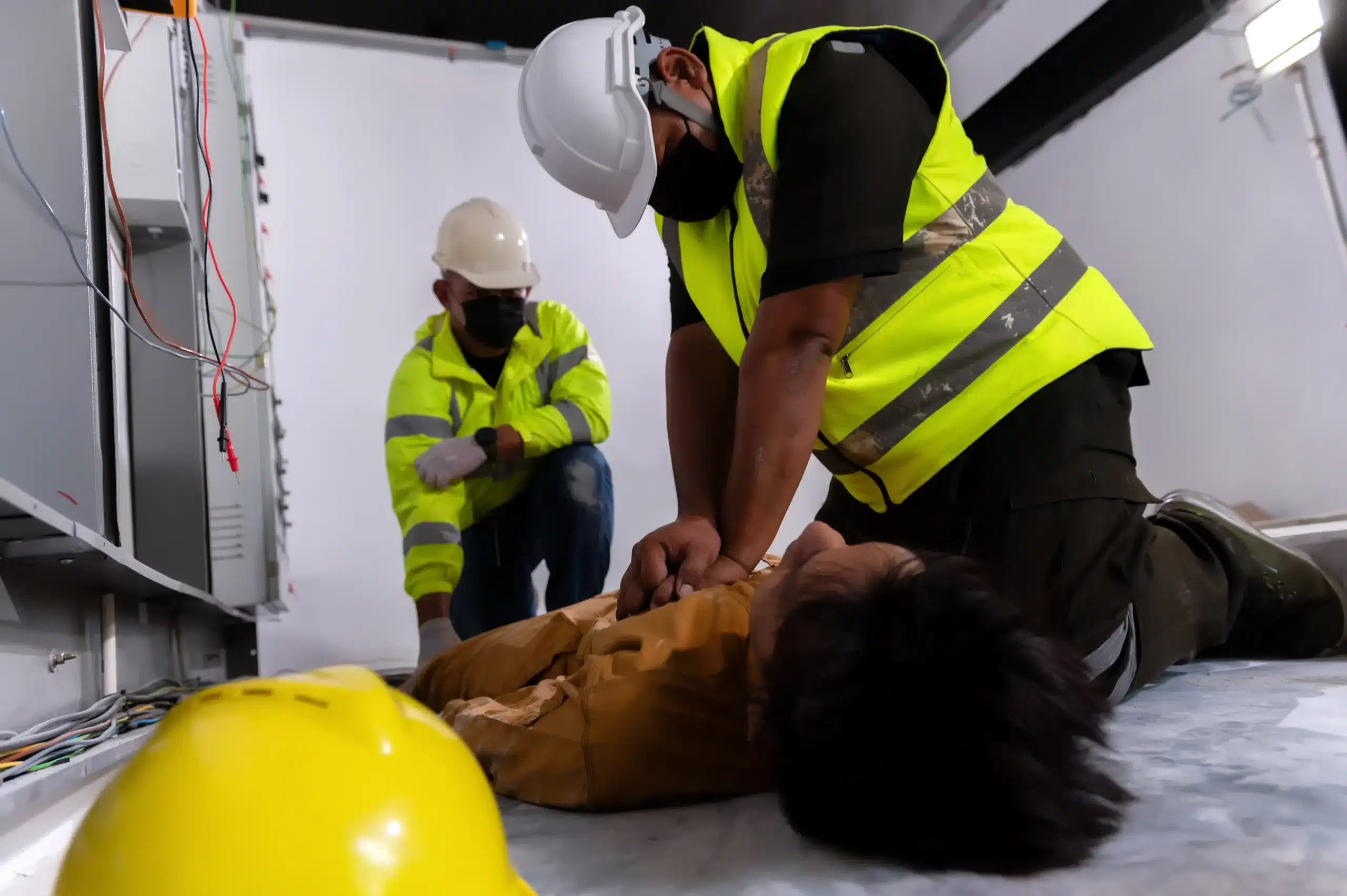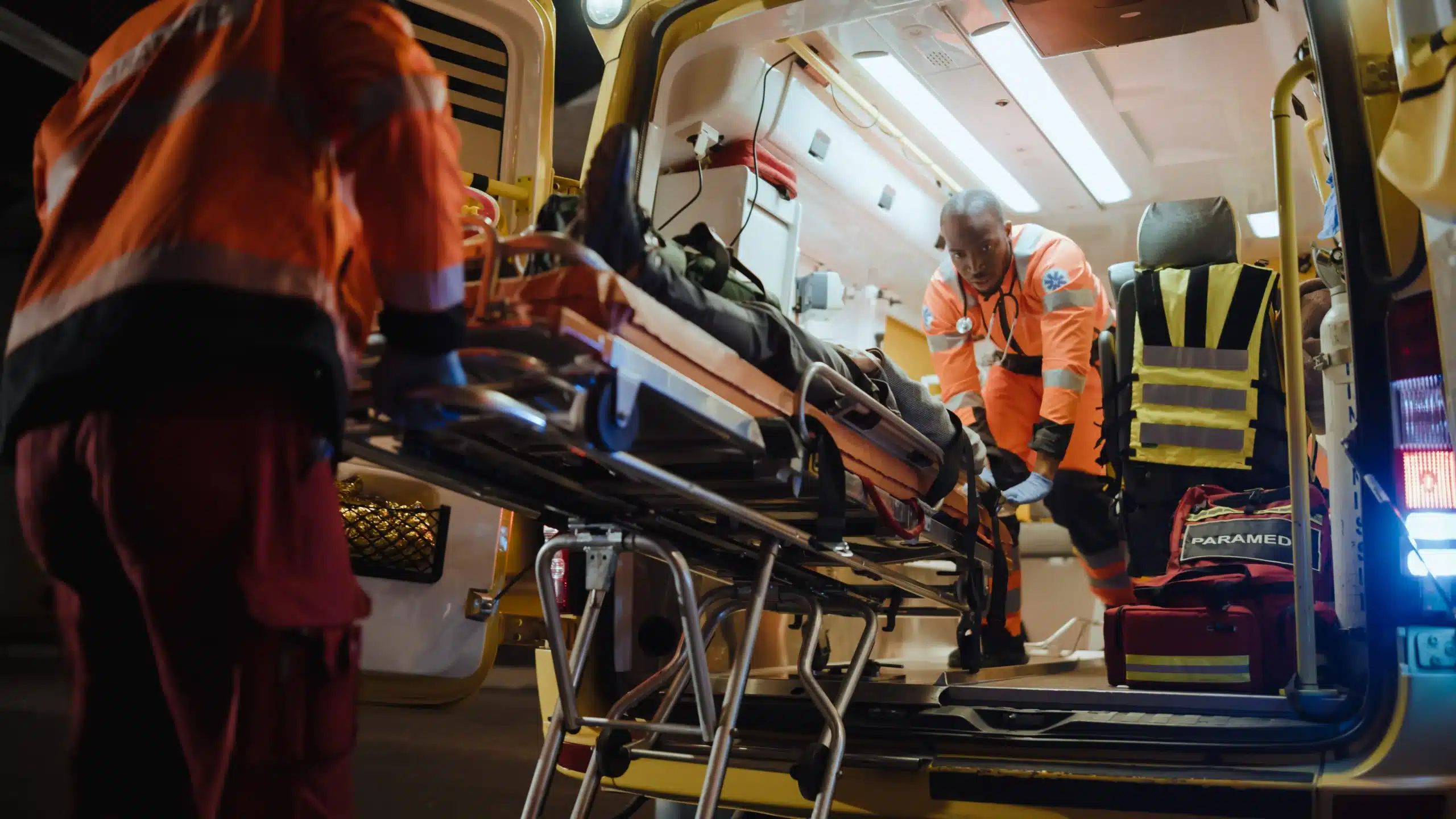Learning CPR can feel empowering, like acquiring a superpower you hope you’ll never need to use. It’s about more than just a certification—it’s about equipping yourself with the skills and confidence to potentially save a life. But where do you even begin? This guide breaks down everything you need to know about CPR certification, from the basics to finding the right course near you. Whether you’re a healthcare professional, a concerned parent, or simply someone who wants to be prepared, we’ll help you find the perfect CPR certification near me and understand why it matters. Let’s get started.
Key Takeaways
- Formal CPR training builds confidence: Structured courses equip you with the skills and knowledge to respond effectively in emergencies, even if certification isn’t legally mandated for your profession.
- Choose a CPR course wisely: Consider factors like the course format (online, in-person, blended), accreditation, instructor experience, and certification validity period to find the best fit for your needs and schedule.
- Stay current with CPR best practices: Maintain your skills and knowledge through refresher courses and continuing education to ensure you’re prepared to provide effective assistance when it matters most.
What is CPR Certification & Why Do You Need It?
CPR certification equips you with the skills to respond effectively during cardiac arrest emergencies. It signifies that you’ve received formal training and demonstrated competency in performing CPR. But is formal training always necessary? Let’s explore.
CPR Basics
It’s a common misconception that you absolutely need certification to perform CPR. Anyone can administer CPR in an emergency. Good Samaritan laws generally protect those who offer assistance, even without formal training. However, a structured CPR course offers significant advantages. It ensures you learn proper techniques, builds your confidence, and reduces the risk of errors during a high-stress situation. Think of it like knowing how to change a tire—you could figure it out in a pinch, but prior knowledge makes the process smoother and more efficient. For those in the Visalia, Tulare, and Delano areas, CPR Visalia offers a range of courses to suit your needs.
How CPR Saves Lives
CPR can be the difference between life and death. Studies show that effective bystander CPR can double or even triple a person’s chances of surviving cardiac arrest. When someone’s heart stops, every second counts. CPR helps circulate oxygenated blood to the brain and other vital organs, buying precious time until professional medical help arrives. This immediate intervention can dramatically improve outcomes and reduce the risk of long-term complications. Learning CPR means you have the power to make a real impact in a critical situation. Check out our low price guarantee to find affordable, high-quality CPR training.
Legal Requirements & Career Advantages
While CPR certification isn’t legally mandated for everyone, certain professions require it. Healthcare professionals, educators, childcare providers, and lifeguards often need CPR certification as a condition of employment. Even if it’s not strictly required for your job, having this skill on your resume can give you a competitive edge. It demonstrates your commitment to safety and preparedness—valuable qualities in any field. Plus, knowing you possess these life-saving skills can boost your confidence and provide peace of mind, both at work and in your personal life. Contact us today to learn more about how CPR certification can benefit you. If you’re considering a career in healthcare, CPR certification is a crucial step toward becoming a well-rounded and highly sought-after professional.
CPR Certification Courses Near You
Finding the right CPR certification course depends on your specific needs and location. Here’s a breakdown of common CPR certifications and where to find them near Visalia, Tulare, and Delano, CA:
Basic Life Support (BLS)
BLS certification is the cornerstone for healthcare providers, equipping them with the skills to respond to life-threatening emergencies. It covers core techniques like chest compressions, rescue breaths, and using an AED. Safety Training Seminars in Visalia offers BLS courses through the American Heart Association, ensuring you receive high-quality training that meets industry standards. With daily classes available, finding a time that fits your schedule is easy. For those needing BLS recertification, Safety Training Seminars also offers convenient RQI classes.
Heartsaver CPR/AED
Heartsaver courses are designed for anyone who wants to learn CPR and how to use an AED—even if you’re not a healthcare professional. These courses empower you to respond confidently to emergencies in your workplace, home, or community. The American Red Cross offers Heartsaver courses in nearby locations. Check their website for class schedules and availability.
Pediatric CPR
For parents, caregivers, teachers, and anyone who works with children, Pediatric CPR training is essential. It teaches you how to respond to emergencies involving infants and children. Safety Training Seminars can help you find comprehensive Pediatric CPR training through their PALS (Pediatric Advanced Life Support) certification.
Advanced Cardiac Life Support (ACLS)
ACLS certification is an advanced level of training for healthcare professionals who manage cardiac arrest and other cardiovascular emergencies. It builds upon BLS skills and incorporates advanced airway management, pharmacology, and team dynamics. ACLS courses are available through Safety Training Seminars in Visalia, providing healthcare providers in the area with access to this critical training. Remember to check out Safety Training Seminars’ Low Price Guarantee for the best value on your CPR certification. If you have questions or need more information, don’t hesitate to contact them.
Find Reputable CPR Certification Providers
Finding the right CPR certification provider is crucial for receiving high-quality training that meets industry standards. Here are some well-regarded organizations and institutions to consider:
American Heart Association (AHA)
The American Heart Association is a leading authority on CPR training. They offer various courses, from basic life support (BLS) for healthcare providers to Heartsaver CPR/AED training for the general public. AHA courses are comprehensive and science-backed, giving you the confidence to respond effectively in emergencies. You can easily find AHA-certified training centers and instructors through their website. For those in Visalia, Tulare, and Delano, Safety Training Seminars offers several AHA courses, including BLS for healthcare providers.
Safety Training Seminars
Safety Training Seminars specializes in CPR and first aid certification courses in Visalia, CA, and surrounding areas. They offer a range of AHA-aligned courses, including BLS, ACLS, PALS, and first aid. This makes them a convenient option for all your certification needs. Their commitment to low prices and excellent customer service makes them a popular choice. Check their website to view the course schedule and register for classes.
American Red Cross
The American Red Cross is another trusted source for CPR certification. They offer various courses, including CPR/AED training for adults, children, and infants. The Red Cross provides flexible learning options, including in-person classes, online modules, and blended learning formats. Locate Red Cross training courses near you through their website.
National Safety Council (NSC)
The National Safety Council is a well-respected organization dedicated to promoting health and safety. They offer CPR and first aid training programs designed to equip you with the skills to respond to emergencies confidently. NSC certification is widely recognized and accepted. Find NSC-approved training centers and courses through their website.
Local Community Colleges & Hospitals
Your local community college or hospital is often a great resource for affordable CPR certification. These institutions frequently offer courses taught by experienced professionals, providing hands-on training. Check their websites or contact their continuing education departments for information on CPR training availability.
Choose the Right Course Format & Duration
Deciding on the right CPR course involves more than just the content—it also means finding a format and schedule that works for you. Let’s break down the most common options: in-person, online, and blended learning.
In-Person Classes
In-person CPR classes offer hands-on training and direct interaction with an instructor. This format is ideal for those who learn best in a traditional classroom setting and value the opportunity to ask questions and practice skills in real-time. Practicing on mannequins and receiving immediate feedback can significantly improve your confidence and competence. In-person training often leads to certifications that meet OSHA requirements and are widely accepted by employers.
Online Courses
Online CPR certifications provide a flexible alternative to traditional classes. You can learn at your own pace and complete the coursework from anywhere with an internet connection. If you’re looking for convenience and your profession doesn’t mandate in-person training, an online course might be a good fit. However, it’s crucial to understand that online-only CPR certifications might not meet all requirements, especially for healthcare professionals or other regulated industries. Always double-check with your employer or licensing board to ensure an online course fulfills their specific criteria.
Blended Learning
Blended learning combines the best of both worlds. These courses typically involve online instruction for the theoretical part of CPR, followed by an in-person session for hands-on skills practice and evaluation. This format offers flexibility while still ensuring you get the practical experience necessary for effective CPR. Like online-only courses, it’s essential to verify whether a blended learning course meets the requirements of your workplace or licensing body. Blended learning can be a great option if you prefer to learn the basics at your own pace but also recognize the importance of hands-on training.
Typical Course Lengths
Course duration varies depending on the format and the specific type of CPR training you choose. In-person classes generally range from two to four hours. Online and blended learning courses can offer more flexibility in terms of scheduling, allowing you to complete the coursework on your own time. When choosing a course, consider your available time and preferred learning style to find the best fit. For example, if you have a busy schedule, a blended learning or online course might be more manageable than a four-hour in-person class. Check our course calendar for specific course lengths and schedules.
Understand CPR Certification Costs & Value
Getting CPR certified is an investment in yourself and your community. Understanding the costs, along with the long-term benefits, helps you make informed decisions. Let’s break down the typical price ranges, potential discounts, and the overall value of this life-saving skill.
Average Price Ranges
CPR certification costs vary based on several factors, including the certification level, course format (online, in-person, or blended), and your location. Generally, basic CPR and First Aid certification courses range from $75 to $120. More specialized certifications, like ACLS or PALS, typically come at a higher price. For example, our BLS course is priced competitively within this range, covering the online portion, skills test, and your AHA certification card. Comparing prices from different providers is always a smart move.
Discounts & Group Rates
Many CPR training providers offer discounts for group bookings, making it a cost-effective option for workplaces, community groups, or families. If you’re training a larger group, ask about potential discounts. Some providers, like Manteca CPR Classes, offer reduced rates for groups of 14 or more. This can significantly lower the per-person cost, making it easier to equip your entire team with these essential skills. For a truly budget-friendly approach, consider organizing a group training session.
Low Price Guarantees
Look for training centers that offer a low-price guarantee. This ensures you’re getting the best possible value. At Safety Training Seminars, we’re committed to providing the lowest prices in Tulare County, and we’re confident in our price-matching policy. We believe cost shouldn’t be a barrier to learning these vital skills. Check our website for more information on our commitment to affordability.
Long-Term Benefits
While there’s an upfront cost for CPR certification, the long-term benefits far outweigh the initial investment. The ability to provide CPR in an emergency can save a life. For healthcare providers, CPR training enhances their ability to respond effectively to critical situations, improving patient outcomes. Beyond the potential to save lives, CPR certification can strengthen your resume, open up new career opportunities, and provide a sense of empowerment. Think of it as an investment in your future, your community’s well-being, and the peace of mind that comes with being prepared. Contact us with any questions about our courses. We’re here to help.
Select the Right CPR Course
Choosing the right CPR course is crucial for effective learning and meeting your specific needs. Consider these factors to make an informed decision:
Assess Your Needs
First, determine why you need CPR certification. Are you pursuing it for personal knowledge, job requirements, or a specific profession like healthcare or childcare? If you’re a healthcare provider, you’ll likely need a more advanced course like BLS or ACLS. Parents, teachers, or coaches might find a basic CPR/AED course sufficient. Understanding your needs helps narrow down the options. You generally have two options: in-person and online training. For example, if you are a healthcare provider, you may want to consider taking RQI classes.
Compare Course Content & Accreditation
Not all CPR courses are created equal. Look for courses accredited by reputable organizations like the American Heart Association. AHA certification is widely accepted and ensures the course content aligns with the latest scientific guidelines. The effectiveness of bystander CPR in significantly improving survival rates during cardiac arrest underscores the importance of quality training. Compare course content to ensure it covers essential techniques, including chest compressions, rescue breaths, and AED use.
Check Certification Validity
Before enrolling, confirm the certification’s validity and how long it lasts. Most certifications are valid for two years. Also, check if the certification meets the requirements of your workplace or licensing board. Online CPR certifications may not satisfy all requirements, particularly in regulated fields like healthcare, so verify acceptance beforehand. For example, if you work at a hospital, you’ll want to make sure your certification is valid. If you need proof of participation, ask the provider if they offer completion cards. Safety Training Seminars offers a low price guarantee, so you can be confident you’re getting the best value for your training.
Evaluate Instructors
Qualified instructors are essential for a positive learning experience. Look for instructors with extensive experience, current certifications, and strong teaching skills. Hands-on practice is a critical aspect of CPR training. In-person classes offer the opportunity to practice on CPR training mannequins, allowing you to develop proper technique and build confidence. If you learn best in person, consider taking an in-person class. You can find BLS courses in Visalia at Safety Training Seminars. If you have questions about which course is right for you, contact us today.
Maintain Your CPR Skills & Certification
CPR isn’t a learn-it-and-forget-it skill. Staying current with the latest techniques and maintaining your certification is crucial for providing effective, potentially life-saving assistance.
Renewal Requirements
CPR certifications, like those from the American Heart Association, are typically valid for two years. Keep track of your expiration date and plan for renewal. Refresher courses offer a quicker path to recertification than the initial training. These shorter courses cover essential updates and reinforce your existing knowledge. Check with your certifying organization for specific renewal requirements.
Continuing Education
Even if your certification is still valid, regular practice and continuing education are key to maintaining proficiency. Consider participating in workshops or practice sessions to keep your skills sharp. Effective CPR training emphasizes adapting techniques based on the victim’s specific condition. This means staying informed about the latest research and best practices.
Stay Updated on New Techniques
The medical field is constantly evolving, and CPR techniques are no exception. Staying updated on the latest guidelines from organizations like the American Heart Association is essential for delivering the most effective care. These updates often incorporate new research and insights, potentially improving outcomes in cardiac arrest cases. Remember, effective bystander CPR can significantly impact survival rates, so staying current is a responsibility we all share. Contact us at Safety Training Seminars to learn more about staying up-to-date on the latest CPR techniques and guidelines. We offer a variety of courses, including BLS courses in Visalia, to help you maintain your skills and knowledge.
Related Articles
- CPR Renewal in Visalia: Your Complete Guide – Visalia CPR Classes
- CPR Training in Visalia: Your Complete Guide – Visalia CPR Classes
- BLS Certification in Walnut Creek: Your Guide – Visalia CPR Classes
- Why CPR Is Crucial in Healthcare
- CPR Classes in Visalia: Find the Right One For You – Visalia CPR Classes
Frequently Asked Questions
Do I need to be certified to perform CPR? No, you are not legally required to have certification to perform CPR during an emergency. Good Samaritan laws protect those who offer help, regardless of training. However, formal training provides a strong foundation in proper techniques, boosting your confidence and effectiveness in a stressful situation.
Where can I find CPR classes near Visalia, CA? Safety Training Seminars in Visalia offers various CPR certification courses, including BLS, ACLS, PALS, and First Aid. They provide daily classes and cater to Visalia, Tulare, and Delano, CA. The American Red Cross and local community colleges or hospitals are other potential resources for CPR training in your area.
How much does CPR certification cost? The cost of CPR certification varies depending on the course type, format (online, in-person, blended), and location. Basic CPR/AED courses typically range from $75 to $120. More advanced certifications like ACLS and PALS are generally more expensive. Check with your chosen provider for specific pricing and any available discounts. Safety Training Seminars offers a low-price guarantee for their courses.
How long is a CPR certification valid? Most CPR certifications are valid for two years. It’s essential to keep track of your certification’s expiration date and renew it promptly to maintain your skills and credentials.
What’s the difference between online and in-person CPR training? Online CPR training offers flexibility, allowing you to learn at your own pace and convenience. In-person classes provide hands-on practice, direct interaction with an instructor, and the opportunity to receive immediate feedback. While online courses can be a good option for some, in-person training is often preferred, especially for healthcare professionals and those who value hands-on learning. Blended learning combines online learning with in-person skills sessions, offering a balance between flexibility and practical experience. Consider your learning style and any requirements from your employer or licensing board when choosing a format.
